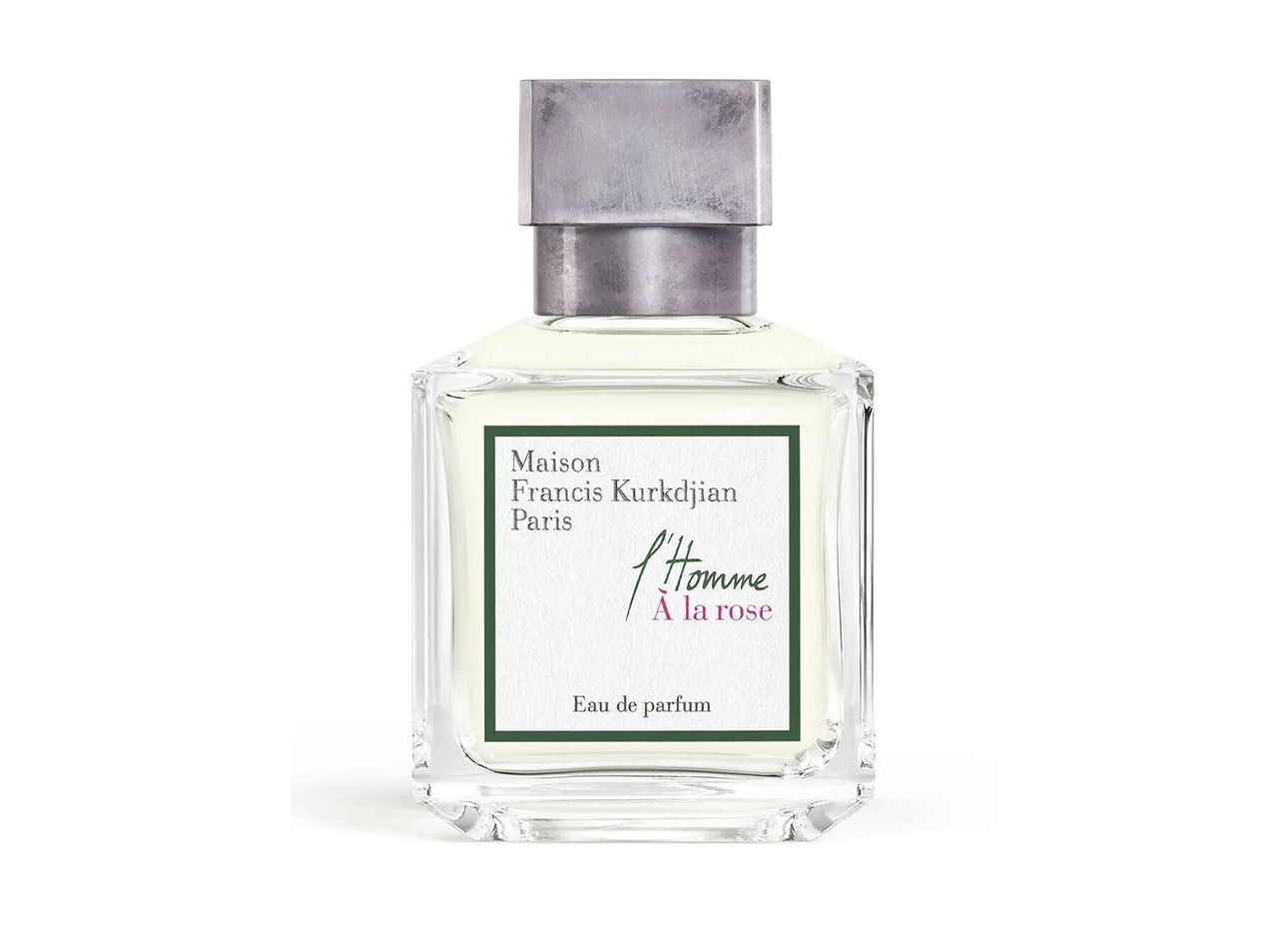
A Rose Perfume That Smells Like a Man
Francis Kurkdjian, co-creator and creative director of Maison Francis Kurkdjian, and the world-renowned perfumer behind classic scents—most notably Jean Paul Gaultier’s Le Male—tells us about his latest creation: l’Homme À la Rose.
“Rose is one of the most common ingredients in the perfumer’s palette. However, it remains an ingredient: a tool to express a feeling and idea in the exact same way notes, colors, or words are tools to a music composer, a painter, or a writer. To make another parallel, silk as a fabric is neither feminine nor masculine. But the way it is shaped by the designer, and the convention linked to that object, gives it a gender, as you can have a tie or a dress.
Historically, rose has never really had a prominent place in men’s fragrance. In many fragrances, rose is included, but plays a smaller role and can’t necessarily be distinctly smelled. It is hidden behind other notes or blended with darker ones—patchouli, oud, leather—that blur it. I wanted to create a rose scent for men that was truly recognizable as a rose, defining my interpretation of what masculinity means right now. I blended different types of accords so the final scent would be this floral, woody eau de parfum. Today, men are wearing perfumes more and more and buying them themselves. They are more confident in wearing perfumes than before. This is why I brought this kind of modernity.
When I had l’Homme À la Rose in mind a couple of years ago, it defined everything: l’Homme—“man”; À la rose—“with a rose.” The name speaks for itself. It’s universal and yet very open, so everyone can project their own meaning [onto it]. I knew I wanted something that was vertical in terms of smell. Something bold and uplifting—not for your mind, but for your body. Something that straps you back and opens your torso like you’re proud.
I studied ballet intensively from age 7 until 14 at the Paris Opera; I stopped dancing when I was 25. There is a relationship between dance and perfumery, and music—that is my other passion. It’s the notion of space, air, and body: A dancer must occupy the space if he wants to stand out on the stage, just as music needs air to vibrate and enter your ears. A perfume needs both.
I am not sure if there are recipes to create iconic scents. Success is always unpredictable. That’s the magic of the craft. Afterwards, it’s easier to identify what makes a fragrance successful: a mix between a timeless element, a contemporary element, and an element that is avant-garde.”